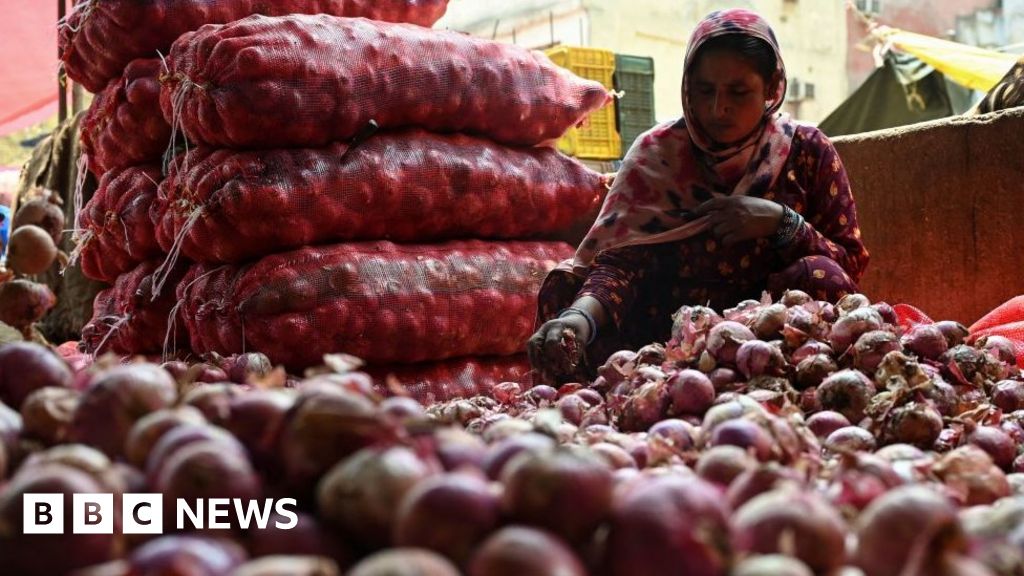India is experiencing a contradictory trend in consumption, as middle-class consumers face the impact of food inflation while upper middle class consumers increase their spending on premium goods like cars and real estate.
Rice prices in Asia have surged to their highest level in almost 12 years due to India's rice export ban and adverse weather conditions, leading to concerns about food price volatility and potential shortages of other food commodities in the region. Factors such as extreme climate events, the onset of El Niño, trade restrictions, and protectionist food policies are contributing to the situation. While most Asian countries can withstand a supply shock in rice, there are concerns about the impact on overall farm output and consumer price inflation, particularly for vulnerable populations.
India has imposed an export tax on onions in an effort to control food inflation as elections approach.
India's decision to impose a 40 percent export duty on onions may exacerbate food inflation in Gulf Cooperation Council (GCC) countries and disrupt supply chains, potentially leading to shortages and price fluctuations. However, the impact is expected to be temporary, and other onion-producing nations may respond to the higher prices by increasing their supplies. GCC countries may need to consider diversifying their sourcing of onions and bolstering domestic cultivation to mitigate future vulnerabilities.
Pressure is mounting in Indian kitchens as food prices, including tomatoes, onions, and potatoes, soar ahead of upcoming state and national elections, prompting potential fiscal populism measures from Prime Minister Narendra Modi's ruling party to mitigate the situation.
India is expected to ban sugar exports due to a lack of rain, which would likely raise global benchmark prices and potentially contribute to further inflation in global food markets.
India is facing a rise in food prices due to uneven and scanty rain, prompting the government to take measures to boost supplies and ease inflationary pressures.
Sky-high food inflation in India, caused by erratic monsoon rains, is leading to low sales and steep discounts in the fashion retail sector, raising concerns about consumer spending.
The Indian government's efforts to control food prices, such as imposing taxes and export bans, may help contain inflation domestically but could lead to higher prices globally, particularly for rice, affecting countries that rely on food imports.
Prices in British shops have risen at their slowest rate since October, with a 6.9% increase in the year to August, due to rising costs of meat, potatoes, and cooking oil, as well as a reduction in grain exports from Ukraine and export restrictions on rice from India, according to the British Retail Consortium.
Global prices for staple foodstuffs have reached a two-year low in August, driven by declines in dairy products, vegetable oils, meat, and cereals, while sugar and rice prices have increased due to export restrictions and extreme weather conditions.
Global food commodity prices declined by 2.1 percent in August, driven by falling prices of essential food items, excluding rice and sugar, according to the latest report from the Food and Agriculture Organization of the UN (FAO). Dairy products, vegetable oils, meat, and cereals experienced decreases in price indices, while the sugar price index showed moderate growth. The report also highlighted a significant surge in rice prices due to disruptions in the rice trade following India's ban on exporting Indica white rice.
